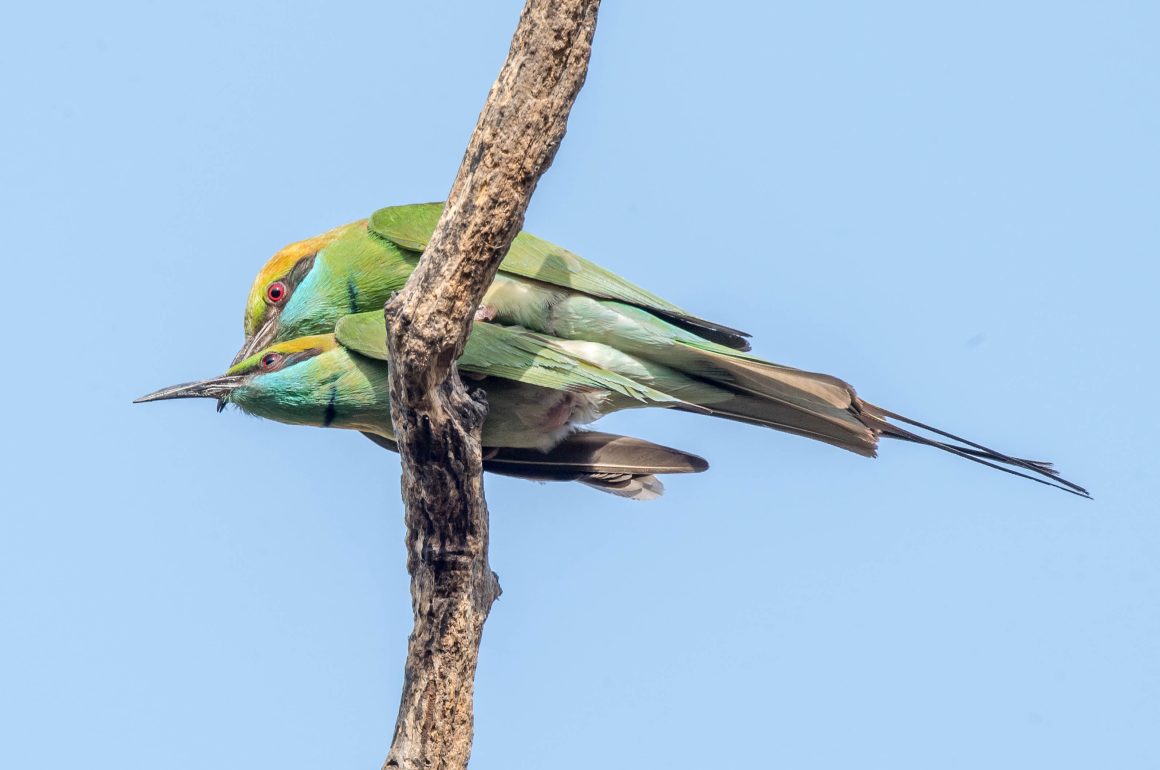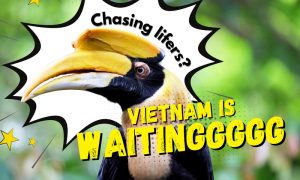
I think I have a fairly scientific mindset. This sets me apart from about half of the US population – people who believe that global warming is a hoax, injecting disinfectants is a way to fight COVID-19, and making a Fox newsreader the Secretary of Defense is a good idea. And of course, these people will in the future complain that China is cheating when making more scientific progress than the US. Anyway, not exactly the topic of a birding blog … so …
Given said mindset, I was wondering whether from a standpoint of evolutionary success (i.e., transmitting one’s genes to future generations), birdwatching is a successful or a detrimental activity.
Not having any clue where to start, I did what everyone does these days: ask ChatGPT. Then took those points, threw out those that did not make much sense to me, rephrased them to sound vaguely human, and here is the result, starting with the (slightly) positive aspects of birdwatching.
First, there are benefits via what ChatGPT somewhat technocratically calls “Social Bonding and Mating Opportunities”. This primarily covers aspects such as birdwatching as a social activity facilitating bonding with others with similar interests.
Next, there is the aspect of status and reputation. Birdwatchers might be more attractive to potential mates as they are seen as more thoughtful and more in tune with nature than non-birdwatchers. Quite possibly, protecting nature may give a person status in like-minded groups – which could translate into additional mating opportunities.
Third, being able to watch birds might indicate a certain level of wealth – not only via the equipment used (think Swarovski – the equivalent of a Ferrari among birdwatchers, though the orange binoculars are also a strong indication of bad taste, as are orange Ferraris), but also because the sheer opportunity costs of birdwatching (you could spend that time in a McDonald’s flipping burgers like Donald Trump, but obviously, you do not need the money).
Finally, birdwatching may directly improve a participant’s health and mental capacity, as spending time outdoors, moving around, and flipping through a field guide searching for a matching species might help in these regards.
But of course, there are two sides to every story, as management consultants like me never fail to point out (we would quickly be unemployed otherwise). So what might be the negative impact of birdwatching on your evolutionary success?
You could simply injure yourself while birdwatching, or even die. The latter is a sure-fire way of reducing your evolutionary prospects to zero. To put it in a simple slogan: “No life, no kids”.
Your birdwatching could also interfere with many activities supporting your mating success – an example being if you spend your evening looking for owls on your own rather than looking for an owlish-looking goth mate in a discotheque. Or expanding your bird lists rather than getting rich and subsequently dazzling elegant-looking models with your riches (and impregnating them).
Finally, birdwatching could make you look like the nerd you probably are – and nerds rank relatively low on the general attractiveness scale. Or to quote ChatGPT directly on this issue (so you cannot blame this statement on me):
“In some cultures or social circles, spending too much time birdwatching (or any hobby considered overly solitary or niche) might be seen as socially isolating or even “weird,” which could lower the chances of social interactions leading to reproductive success.”
And I will also cite ChatGPT directly for the summary of how birdwatching affects your evolutionary success – it is actually more positive than I thought it would be:
“Evolutionary Trade-Off: Overall, birdwatching could be considered a low-investment activity in terms of evolutionary reproduction. It’s not likely to dramatically affect someone’s ability to reproduce, but it could have small positive effects through social interaction and status, or negative effects if it interferes too much with reproductive behaviors.”
One additional point coming just from me (“Mom, I thought of this myself without any help from ChatGPT”): My guess is that from an evolutionary point of view, birdwatching might be slightly more positive for female birdwatchers than for male ones. Given that the majority of birdwatchers are male, female birdwatchers will benefit more from the extended pool of potential mates who do not immediately think of them as nerdy. On the other hand, the old joke about being a female IT person fishing in the dating pool of male IT guys still holds true: ” The odds are good, but the goods are odd”. That includes me, of course.











What if a nerdy birder gets killed before procreating? Darwin Award, Double Darwin Award or One-and-a-half Darwin Award?
I think the premise of this article is an interesting thought experiment. Extending the argument a bit, here are some other thoughts. Certainly we have all known or seen cases where two like-minded partners make a very happy life and [maybe] family around birding. Think of the pleasure of having someone to travel and share time with to pursue a shared goal. If there are kids involved and they are also on board all the better. These are, of course, kids that are not forced. If they would rather be at the mall, hanging out with friends, or on their phone, it’s easy to imagine backlash. That wouldn’t be so good. It is also easy to imagine that paired birding partners might chose not to have kids. A practical decision made so that the paired birders can pursue their hobby without constraint, but of no benefit evolutionarily. More often we may see older, perhaps retired couples out together who have already raised their family and their now adult children are no where in sight because they want nothing to do with their parents hobby.
In discordant cases – one partner a birder, the other not – this could be good, or it could be bad. I imagine this would depend upon the level of fervor in the birding partner. There may be more likelihood of kids being involved. So evolutionarily that would be good. But, who is actively taking care of and raising the kids? Seems like the birding partner, again depending upon the level of fervor, would be unlikely to be a full participant. How would that work out?
Interesting piece because I think many birders have thought about this a time or two. I know I have. Finally, I wonder if golfers engage in the same thought experiment. I’ll take the birder every time.
Thanks for this thoughtful comment, Cathy!